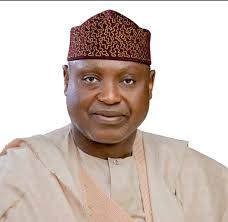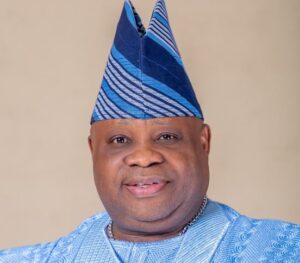
Nigerians and the Tinubu Economic Reforms
By Salisu Na’inna Dambatta
A viral video clip shows President Bola Ahmed Tinubu saying that he was elected to implement reforms and that was why he removed the subsidy on petrol on his first day in office as President. He said that the subsidy on petrol was a pipeline for fraud.
He said that more reforms were coming, presumably in sectors other than the problematic energy industry. The reforms, he admits, are painful, but necessary.
And on June 12, 2024, Reuters, the French News Agency, quoted President Tinubu saying that the hardships caused by the reforms, through higher interest rates, spiral inflation and the removal of electricity subsidies, would create a stronger foundation for future economic growth.
Regardless of the potential economic benefits of the reforms, former Head of State, General Abubakar Abdulsalami and irrepressible Senator Ali Ndume, have drawn the attention of the Tinubu administration to the adverse effects the reforms have on the well-being of millions of Nigerians.
The former Head of State said in Minna that, “Everybody is crying of this hardship and it seems to be getting out of control. People cannot afford three square meals, the issue of transportation, the hike in fuel price, the hike in school fees for the children and the lack of funds in everybody’s pocket is making life difficult for everybody.”
Senator Ali Ndume said the high increase in the prices of fuel, food, essential goods and services have made these items unaffordable by average Nigerians, whom he said are dying in silence. He advised President Tinubu to soften the hard economic situation in the country.
Barrister Felix Morka, the National Publicity Secretary of the ruling All Progressives Congress (APC) which the president co-founded said of the reforms: “The APC-led administration of President Bola Tinubu is taking bold measures to reset our country’s economy. No doubt, these inevitable reforms have increased economic hardship for our people.”
Whereas President Tinubu’s reforms have generated complaints, hardship and pleas for blunting its sharp barbs among Nigerians, it has full backing from outside the country.
For instance, the Vice President and Chief Economist of the World Bank, Mr. Indermit Gill has urged the Tinubu administration to continue with its economic reforms for the next 10-15 years to achieve its objectives. This regardless of the hardships it is inflicting on millions of Nigerians. Nigerian economists and financial experts have faulted his recommendation for whatever its potential benefits are.
Mr. Gill said at the 30th Nigerian Economic Summit (#NES30) in Abuja that the reforms would ensure long-term economic growth. He equally praised the Central Bank of Nigeria (CBN) for its efforts in unifying exchange rates (euphemism for currency devaluation) as a vital step for stabilising the economy.
However, the World Bank’s operative confessed that the ongoing reforms are hurting Nigerians: “The current fiscal and monetary reforms are hurting everyone, especially ordinary Nigerians, who are facing high food and transport costs.”
He advised the Tinubu administration to soften the reforms: “The government must do everything in its power to protect the most vulnerable citizens from hardships because their lives, along with the lives of 110 million children, depend on it.”
The World Bank official was frank on the negative impact of the reforms on Nigerian children as reported by a United Nations Organisation Agency.
The United Nations International Children Emergency Fund (UNICEF) said in its 2023 report that 100 children under five years die of malnutrition every hour in Nigeria. ”This suggests that high food prices and general food insecurity may already be consuming the lives of babies and toddlers by the hour,” the report indicates.
UNICEF painted a grim picture: “In that year, 35 million children under five years suffered from malnourishment. Also, 12 million children had stunted growth, 3 million wasting from excessive and rapid weight loss, and 23.5 million were anaemic.”
Hikes in the Monetary Policy Rate (MPR) by the Central Bank of Nigeria have made credit costly, generated inflation while food and healthcare became unaffordable for millions of Nigeians.
The economic harshness of the reforms has crushed countless Nano. Micro, Small and Medium enterprises. These are the powerhouse of economic growth, job and wealth creation and vital inputs suppliers to the manufacturing sector.
Many Nigerian economic experts believe that the reforms ought to be reviewed to protect vulnerable Nigerians that are falling into a deep poverty abyss.




